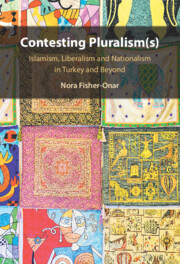Refine search
Actions for selected content:
2 results

Contesting Pluralism(s)
- Islamism, Liberalism, and Nationalism in Turkey and Beyond
-
- Published online:
- 19 December 2024
- Print publication:
- 02 January 2025
Chapter 6 - The Irreconcilable: Marx after Literature
-
-
- Book:
- After Marx
- Published online:
- 12 March 2022
- Print publication:
- 17 March 2022, pp 101-115
-
- Chapter
- Export citation
